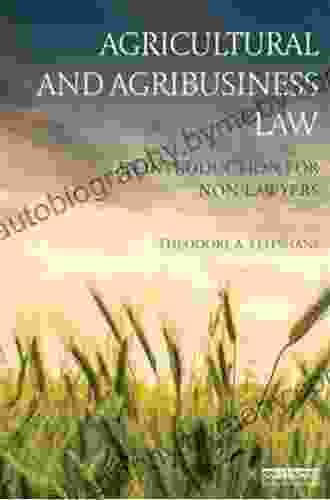Shakespeare And The Grammar Of Forgiveness: Exploring the Transformative Power of Mercy

William Shakespeare's plays are filled with characters who have been wronged and must decide whether or not to forgive their tormentors. In Shakespeare And The Grammar Of Forgiveness, author Stephen Greenblatt explores the complex relationship between forgiveness and justice in Shakespeare's work. Greenblatt argues that forgiveness is not simply a matter of forgetting or excusing wrongng, but rather a process of transformation that can lead to healing and reconciliation.
Forgiveness is never easy. It requires us to confront the pain of the past and to let go of our anger and resentment. In Shakespeare's plays, characters often struggle with the decision of whether or not to forgive. For example, in The Merchant of Venice, Shylock is a Jewish moneylender who demands a pound of flesh from Antonio, a Christian merchant who has defaulted on a loan. Antonio's friends urge him to seek revenge, but Antonio is ultimately willing to forgive Shylock.
The decision to forgive is not always met with understanding or approval. In King Lear, Gloucester is blinded by his son Edmund. Gloucester's other son, Edgar, urges him to forgive Edmund, but Gloucester refuses. He believes that Edmund deserves to be punished for his crimes.
4 out of 5
| Language | : | English |
| File size | : | 684 KB |
| Text-to-Speech | : | Enabled |
| Screen Reader | : | Supported |
| Enhanced typesetting | : | Enabled |
| Word Wise | : | Enabled |
| Print length | : | 245 pages |
Despite the challenges, forgiveness can be a powerful force for good. It can lead to healing and reconciliation, and it can even transform the lives of those who forgive. In The Tempest, Prospero is a magician who has been exiled to a remote island. He uses his magic to bring his enemies to the island, and he plans to take revenge on them. However, Prospero ultimately decides to forgive his enemies. He realizes that revenge will only lead to more pain and suffering.
Prospero's decision to forgive is a reminder that forgiveness is not a sign of weakness. On the contrary, it is a sign of strength and compassion. Forgiveness allows us to let go of the past and to move on with our lives. It can also help us to build bridges between people who have been divided by conflict.
In Shakespeare And The Grammar Of Forgiveness, Greenblatt argues that Shakespeare's plays offer a unique grammar of forgiveness. This grammar provides a framework for understanding the challenges and rewards of forgiveness. Greenblatt identifies four key elements of the grammar of forgiveness:
- Recognition: The first step to forgiveness is to recognize the wrong that has been done. This means acknowledging the pain and suffering that has been caused.
- Remorse: The person who has done wrong must feel remorse for their actions. They must understand the impact of their actions on others.
- Restitution: The person who has done wrong must make amends for their actions. This may involve apologizing, paying reparations, or ng something else to make things right.
- Reconciliation: The final step to forgiveness is reconciliation. This means restoring the relationship between the person who has been wronged and the person who has done wrong.
The grammar of forgiveness is not a simple formula. It is a complex process that can take time and effort. However, it is a process that can lead to healing and reconciliation.
Shakespeare And The Grammar Of Forgiveness is a thought-provoking and insightful exploration of the complex relationship between forgiveness and justice. Greenblatt's close readings of Shakespeare's plays provide a valuable framework for understanding the challenges and rewards of forgiveness. This book is a must-read for anyone interested in Shakespeare, forgiveness, or the human condition.
4 out of 5
| Language | : | English |
| File size | : | 684 KB |
| Text-to-Speech | : | Enabled |
| Screen Reader | : | Supported |
| Enhanced typesetting | : | Enabled |
| Word Wise | : | Enabled |
| Print length | : | 245 pages |
Do you want to contribute by writing guest posts on this blog?
Please contact us and send us a resume of previous articles that you have written.
 Book
Book Novel
Novel Page
Page Chapter
Chapter Text
Text Story
Story Genre
Genre Reader
Reader Library
Library Paperback
Paperback E-book
E-book Magazine
Magazine Newspaper
Newspaper Paragraph
Paragraph Sentence
Sentence Bookmark
Bookmark Shelf
Shelf Glossary
Glossary Bibliography
Bibliography Foreword
Foreword Preface
Preface Synopsis
Synopsis Annotation
Annotation Footnote
Footnote Manuscript
Manuscript Scroll
Scroll Codex
Codex Tome
Tome Bestseller
Bestseller Classics
Classics Library card
Library card Narrative
Narrative Biography
Biography Autobiography
Autobiography Memoir
Memoir Reference
Reference Encyclopedia
Encyclopedia Amy Rivera
Amy Rivera Mike Kim
Mike Kim Anitra Nelson
Anitra Nelson Andrei Martyanov
Andrei Martyanov Barbara Grunes
Barbara Grunes Andrew Solomon
Andrew Solomon Sam Thoma
Sam Thoma Melanie Anne Phillips
Melanie Anne Phillips Phoebe Waller Bridge
Phoebe Waller Bridge Mark Horstman
Mark Horstman Andrew Proulx
Andrew Proulx Oonagh Shanley Toffolo
Oonagh Shanley Toffolo Atharv Shinde
Atharv Shinde Mary O Hora
Mary O Hora Andrew Crowther
Andrew Crowther Max Meyer
Max Meyer Andrew Farago
Andrew Farago Andrew Graham Yooll
Andrew Graham Yooll Angie Franssen
Angie Franssen George Estreich
George Estreich
Light bulbAdvertise smarter! Our strategic ad space ensures maximum exposure. Reserve your spot today!

 Jean BlairStep Back into the Glory Days: The Personalities, Sluggers, and Magic of the...
Jean BlairStep Back into the Glory Days: The Personalities, Sluggers, and Magic of the... José MartíFollow ·10k
José MartíFollow ·10k Jamal BlairFollow ·8k
Jamal BlairFollow ·8k William FaulknerFollow ·8.8k
William FaulknerFollow ·8.8k Albert CamusFollow ·15.9k
Albert CamusFollow ·15.9k Arthur MasonFollow ·2.1k
Arthur MasonFollow ·2.1k Dean CoxFollow ·8.9k
Dean CoxFollow ·8.9k Darnell MitchellFollow ·2.6k
Darnell MitchellFollow ·2.6k Milton BellFollow ·10.9k
Milton BellFollow ·10.9k

 Bryce Foster
Bryce FosterCelebrate the Luck of the Irish: Unveiling Saint...
As the verdant hues of spring brush...

 Chase Simmons
Chase SimmonsCody Rodeo: A Photographic Journey into the Heart of the...
Step into the arena of the...

 David Mitchell
David MitchellUnveiling the Enchanting World of Door County Quilts: A...
Step into the Heart of Amish Country in...

 Floyd Powell
Floyd PowellCowboy Chatter: Unraveling the Enigmatic Tales of the Old...
Step into the...

 Ismael Hayes
Ismael HayesUnlock Content Marketing Mastery: How to Create...
In today's digital landscape, content is...

 Boris Pasternak
Boris PasternakMore Than 200 Hardball Questions For The Thinking Fan
The Ultimate Baseball Trivia Challenge Are...
4 out of 5
| Language | : | English |
| File size | : | 684 KB |
| Text-to-Speech | : | Enabled |
| Screen Reader | : | Supported |
| Enhanced typesetting | : | Enabled |
| Word Wise | : | Enabled |
| Print length | : | 245 pages |









